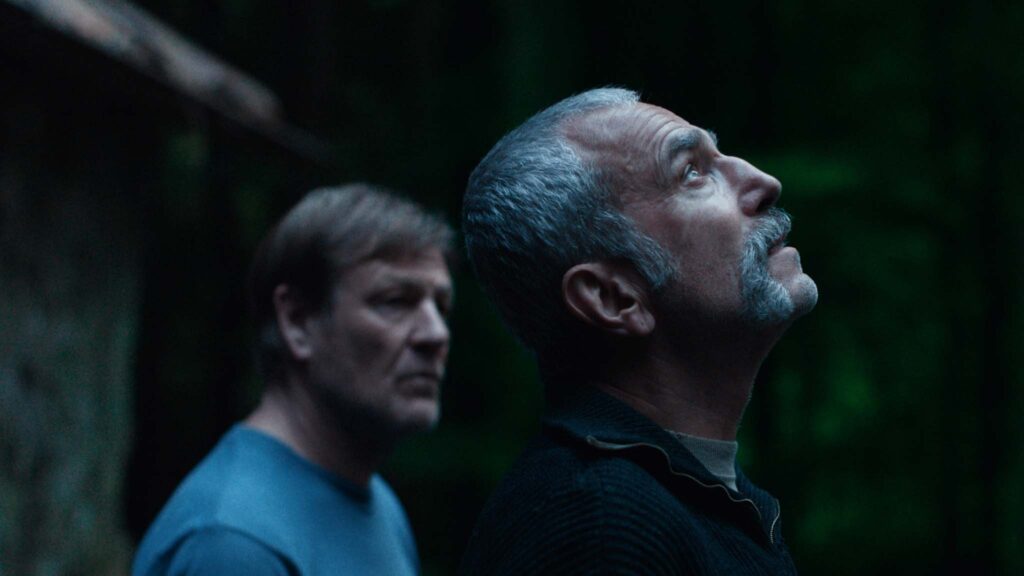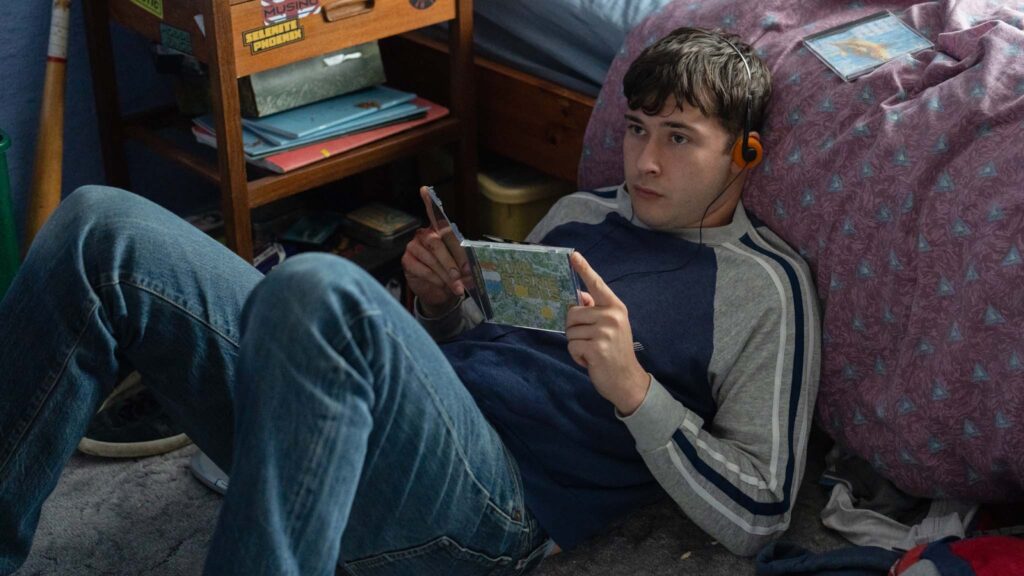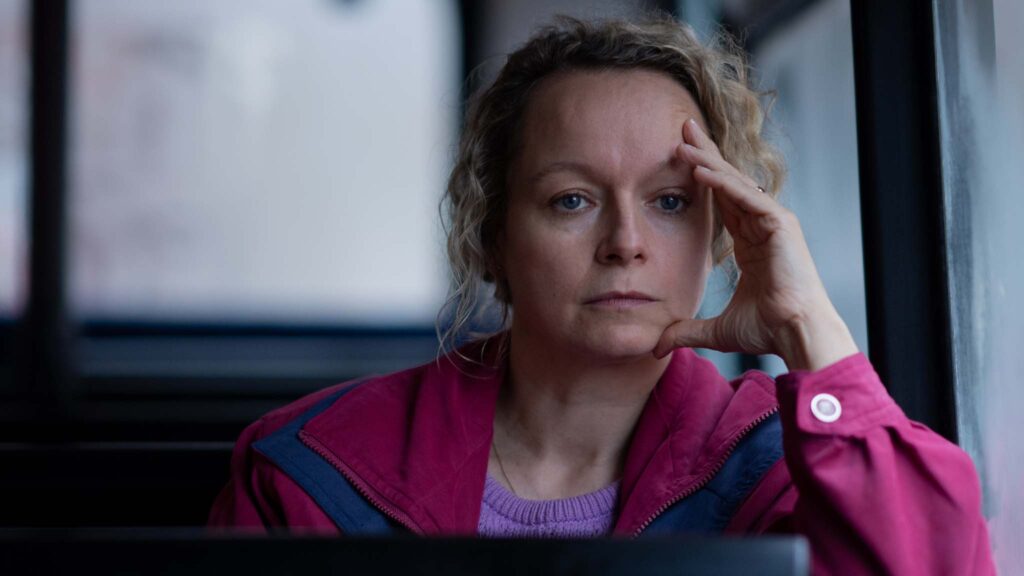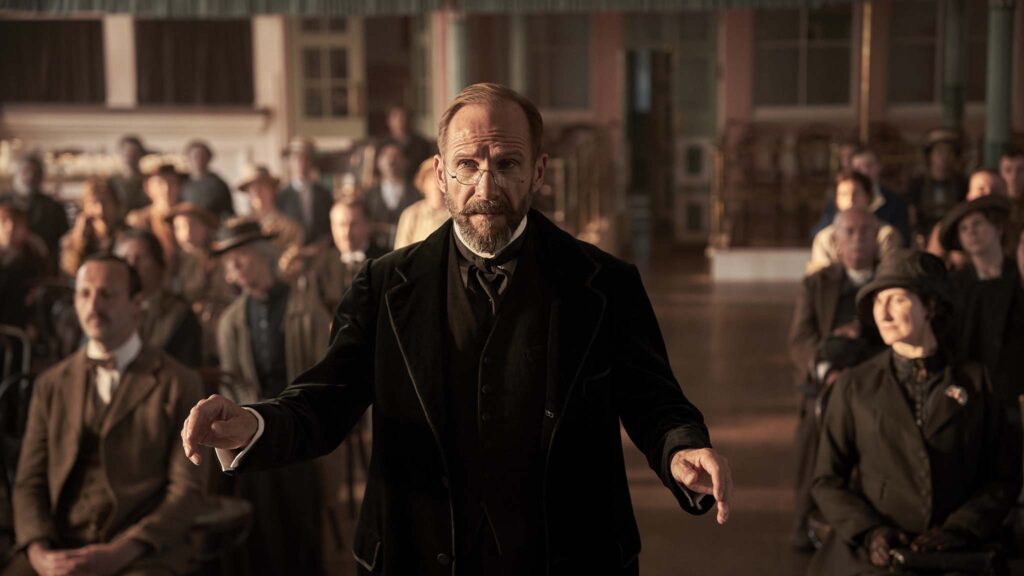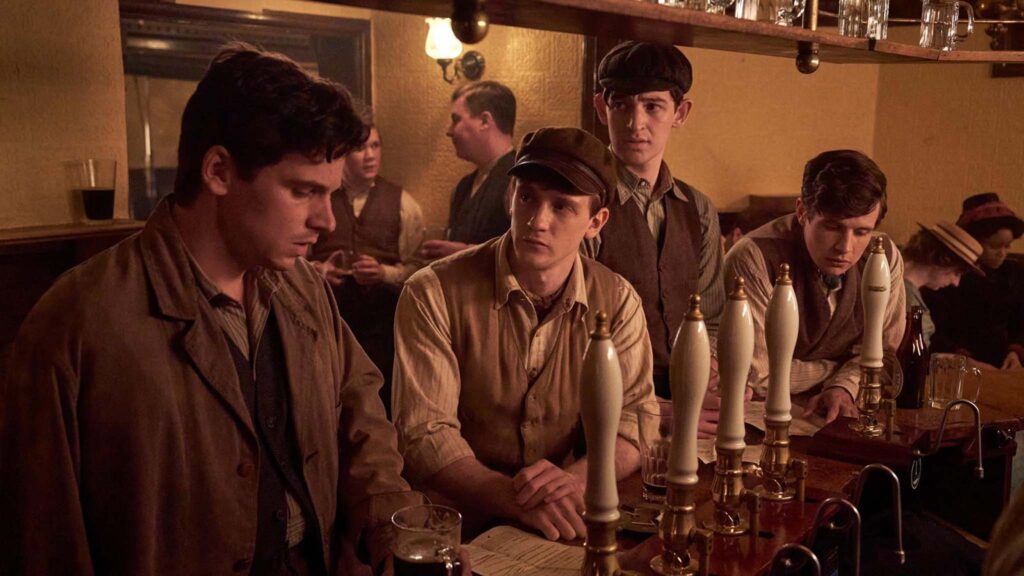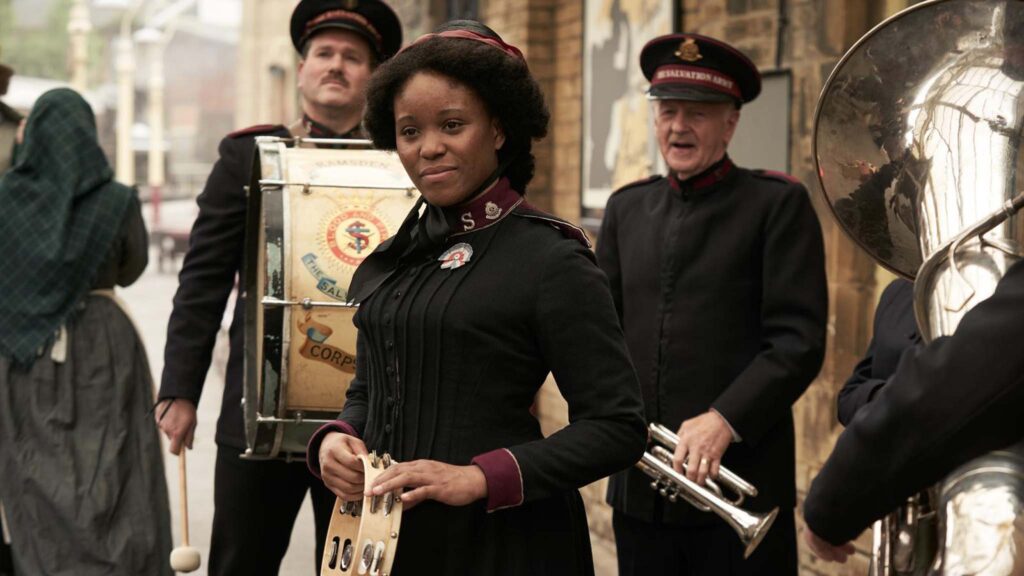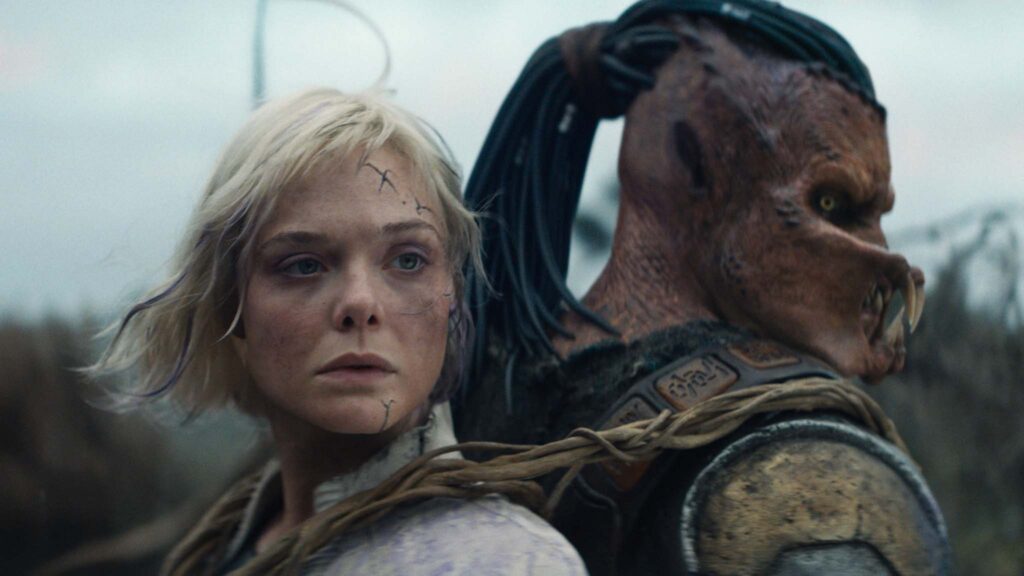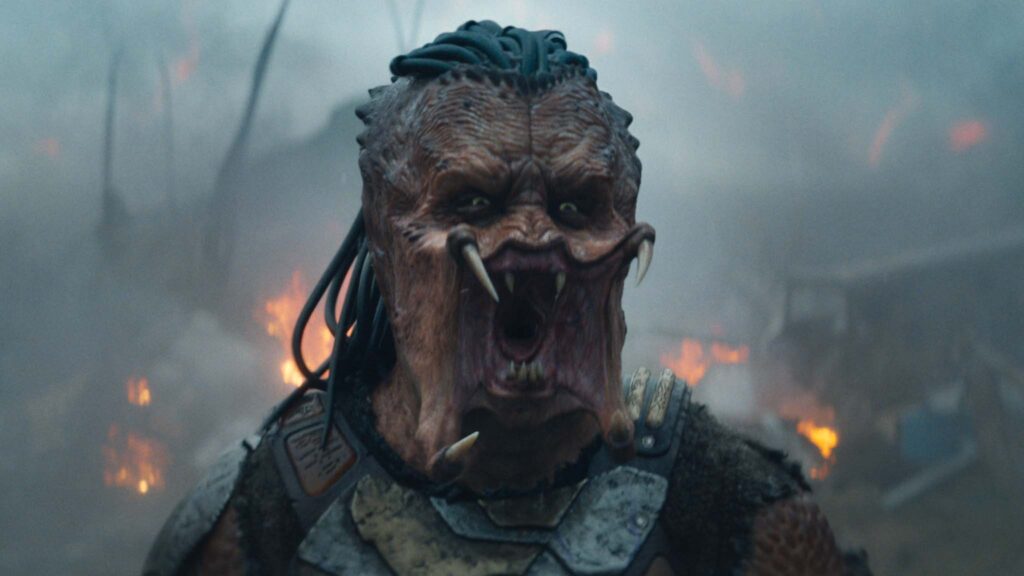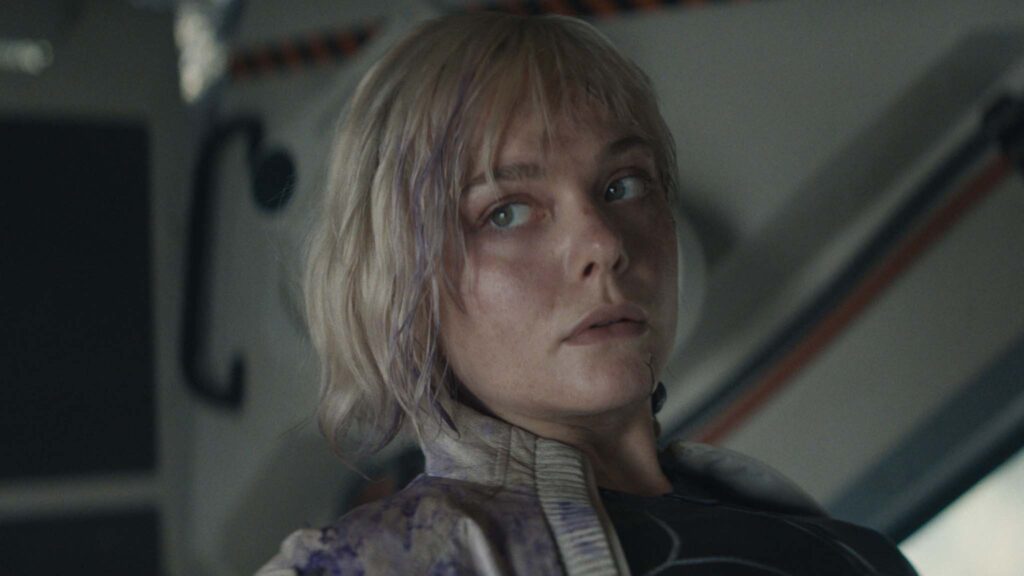Drama
Anemone (15)
Review: Three-time Oscar winner Daniel Day-Lewis comes out of retirement to deliver a thunderous and uncompromising performance flecked with simmering fury and tear-sodden anguish in his son Ronan’s audacious feature directorial debut. Fractious family dynamics are at the gnarled, blackened heart of Anemone, co-written by two generations of the Day-Lewis dynasty. Shot on location in the north of England and Wales, this unremittingly bleak drama repeatedly venerates style over substance, drawing attention to bold directorial flourishes and impeccably composed tableaux at the expense of storytelling clarity, full-blooded characterisation and dramatic expediency.
A freak hailstorm, which unleashes cricket ball-sized pellets of ice on the cast, is staged with breathless brio and the image of a giant fish floating downstream in lustrous slow motion is haunting but both vignettes serve no clear narrative purpose beyond demonstrating the younger Day-Lewis’s artistic flair. The script builds gradually to the revelation of a dark family secret, spoken aloud in the film’s turbulent second act, along with the sobering truth about a merciful act that has been misconstrued as something untoward.
Meaty, emotionally wrought monologues, delivered with typical aplomb by older Day-Lewis, fill in the blanks. Co-star Sean Bean attempts to match the snarling ferocity. Both men end up wrestling in the mud. Gorgeously framed inserts of trees swaying in the breeze, a hilltop-trek framed by the ochre glow of the sun and Mother Nature’s fury bloat the running time beyond two hours.
Jem Stoker (Bean) has been estranged from his brother Ray (Day-Lewis) for 20 years, haunted by a family history scarred with violence and regret. During those two decades, Jem has sought refuge in his faith and the love of his partner Nessa (Samantha Morton) while Ray has forged a solitary life in self-imposed exile in a primitive cabin in the woods. Nessa’s troubled son Brian (Samuel Bottomley) faces dire repercussions after he lashes out at bullies taunting him about his father Ray.
Concerned about the young man’s mental wellbeing, Nessa entreats Jem to deliver a handwritten letter to Ray to implore him to return home and explain the past to his son. Long-forgotten resentments bubble to the surface as siblings revisit old grudges and the shattering truth of Ray’s actions during The Troubles in Northern Ireland. Jem compels his brother to confront these phantoms but Ray resists opening old wounds: “I don’t owe nowt to nobody.”
Anemone is an artfully staged meditation on abandonment, guilt and intergenerational trauma that keeps us at arm’s length from the on-screen despair. This sensorial overload, crafted in collaboration with cinematographer Ben Fordesman, struggles to make an impact beyond its technical execution. The older Day-Lewis is gifted the lion’s share of the verbal fireworks (“Got me girl, got me son, got me life. What else so you want?!”) while Morton and Bottomley are short-changed in their disappointingly limited screen time.
Find Anemone in the cinemas
Comedy
The Choral (12A)
Review: Hallelujah! The Choral is a quietly uplifting and surprisingly sombre meditation on community spirit nestled in the kind of resilient, warm-hearted town in the north of England that has served Alan Bennett well as a playwright and screenwriter. The spectre of the Great War looms large over director Nicholas Hytner’s latest collaboration with the 91-year-old national treasure, which began on screen in 1994 with The Madness Of King George and has flourished more recently with The History Boys and The Lady In The Van.
Bennett’s ear for melodic dialogue is still sharp. When a choir master retires to enlist in the army, one disgruntled tenor snipes: “I hope he puts the wind up the Germans more than he ever did the sopranos.” Ralph Fiennes delivers a restrained performance as the incoming conductor, who was working in Germany before hostilities broke out and secretly carries a photograph of a U-boat sailor.
In one of the film’s most striking vignettes, townsfolk burst into a rousing chorus of the national anthem when they hear the British have sunk a German submarine. Fiennes’ mentor stands silent in the boisterous throng, fearing the worst. Joy and despair ride side-saddle throughout Hytner’s picture and the director navigates gentle tonal shifts with confidence, building to a rousing final performance that – by design – is tinged with melancholy.
In 1916 as brave young men go to war, mill owner Alderman Duxbury (Roger Allam) and associates Mr Fyton (Mark Addy) and Mr Trickett (Alun Armstrong) face their own challenge in the Yorkshire town of Ramsden: to recruit a new music director capable of masterminding the choral society’s forthcoming concert performance. The committee reluctantly appoints atheist Dr Henry Guthrie (Fiennes), who has recently returned from Germany and, most scandalously, is “not a family man”.
Henry insists on bringing along his personal pianist, Robert (Robert Emms), and they recruit fresh blood including 17-year-old friends Ellis (Taylor Uttley), Lofty (Oliver Briscombe) and Mitch (Shaun Thomas), who eagerly anticipate chance to fight in the trenches when they come of age. To appease Alderman Duxbury, Henry avoids any compositions by German composers and he suggests a reworking of The Dream Of Gerontius by Sir Edward Elgar (Simon Russell Beale). Pious Salvation Army servant Mary (Amara Okereke) wins one of the the lead roles and excitedly rehearses for her moment in the spotlight.
The Choral bears Bennett’s fingerprints from the droll opening frames and Hytner’s film treads gently over uneven yet well-trodden ground, galvanised by an excellent ensemble cast in fine voice. The script is overstuffed with characters and some (predominantly men) are more fully formed than others. George Fenton’s mournful orchestral score keeps calm and carries on, underscoring a mood of grim determination.
Find The Choral in the cinemas
Sci-Fi
Predator: Badlands (15)
Review: Since our first encounter with the trophy-hunting Yautja in the 1987 film Predator, the agile extra-terrestrial warriors who stalk prey using thermal imaging-enabled headwear and advanced cloaking technology have been portrayed as the bad guys. Two lacklustre franchise fusions, Alien Vs Predator and Aliens Vs Predator: Requiem, pitted the mighty Yautja against the most formidable organism in the universe. On both occasions, acid-blooded xenomorphs with an icky penchant for bursting out of chests came out on top.
Director Dan Trachtenberg perpetuated the antagonistic Predator mythology in his slickly engineered 2022 film Prey but now he flips the narrative on its head in a mismatched buddy action thriller in deep space, told through the eyes of a predator who has been cast out from his clan. Scripted by Patrick Aison and Brian Duffield, Predator: Badlands upcycles a classic underdog story in otherworldly surroundings with an emphasis on pulse-quickening stunts and visual effects-laden spectacle.
Actor Dimitrius Schuster-Koloamatangi’s face is concealed behind motion-captured digital trickery and he speaks in a language developed for the film but still manages to convey his character’s churn of emotions as he matures from outcast whelp to merciful protector. Elle Fanning scene-steals as the chatterbox comic relief and reaffirms connective tissue between the Predator and Alien universes.
Dek (Schuster-Koloamatangi) is an inexperienced Yautja, desperate to impress his father Njohrr, who is the leader of their clan. Protective older brother Kwei (Mike Homik) prepares Dek for his first hunt to prove the doubters wrong. The so-called runt of the litter chooses to slay a hulking Kalisk on the far-off planet of Genna. He must return with evidence of the slain beast or be cast out from the tribe. “Father calls me the weakest, so I must kill the strongest,” rationalises Dek.
The headstrong Yautja crash-lands on Genna and encounters a badly injured Weyland-Yutani synthetic soldier called Thia (Fanning), who was separated from her twin Tessa (Fanning again) while hunting the Kalisk. Thia offers to help Dek capture his prey in exchange for locating her missing torso and legs. The visiting warrior is adamant that he must survive on his own but Thia’s sophisticated empathy programming strikes a chord: “We can be more than what they ask of us.”
Predator: Badlands is a robust and muscular action thriller that gleefully upends expectations of the franchise’s ardent fanbase. Action sequences are staged with brio, albeit with an overload of digitally rendered eye candy in bombastic skirmishes with voracious fauna and hulking seven-storey beasts that don’t tolerate interlopers in their primeval world. Schuster-Koloamatangi and Fanning are an appealing double-act in the eye of the storm. Scriptwriters Aison and Duffield cannot resist a coda that blatantly sets up another film. Hopefully, any sequel would be more like Aliens than Predator 2.
Find Predator: Badlands in the cinemas


